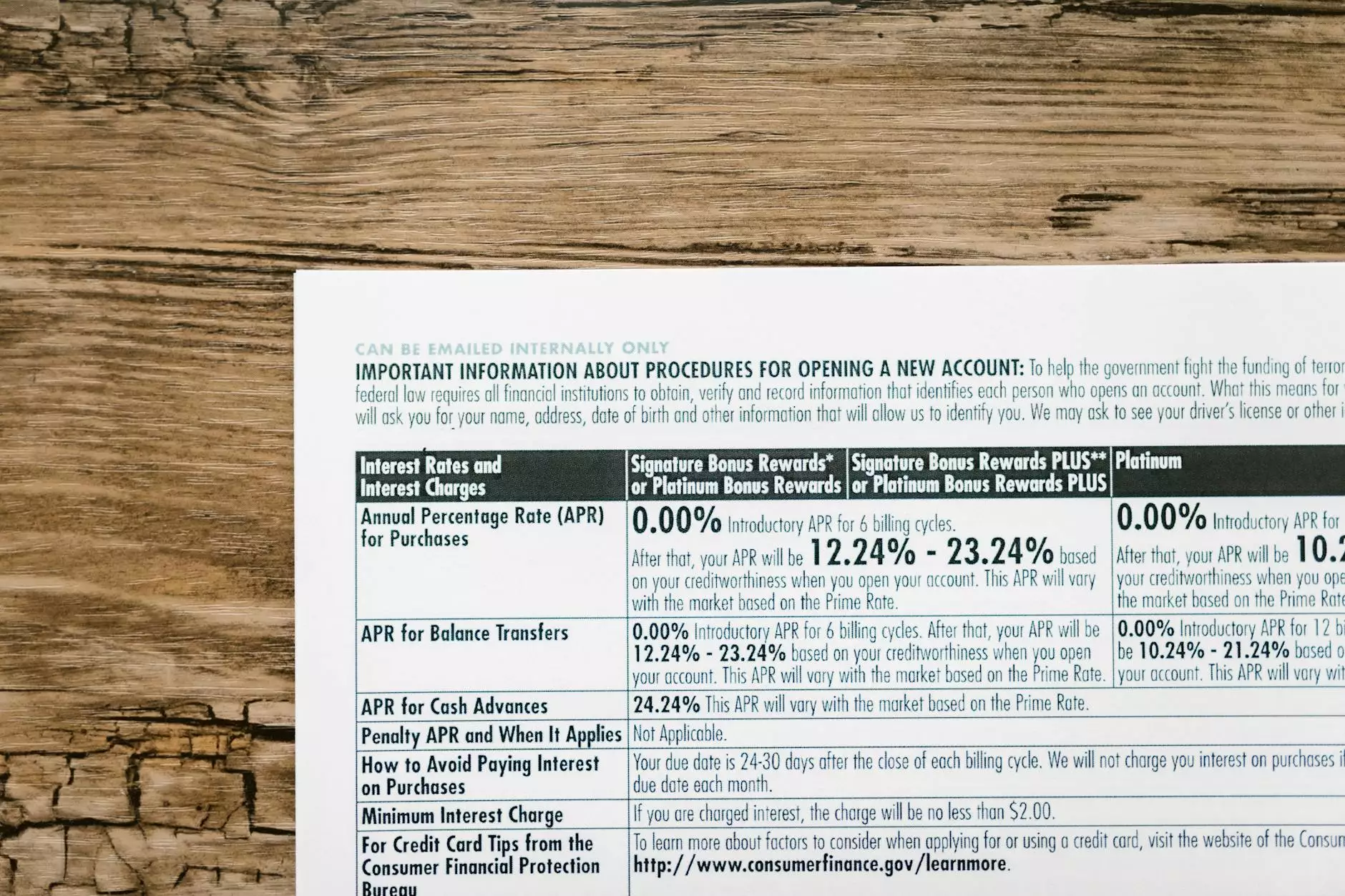The Benefits and Opportunities of Purchasing a Small Bank for Sale

If you're considering an investment in the financial sector, the phrase "small bank for sale" might catch your attention. Investing in a small bank can be a lucrative opportunity for the right investor. This article delves into the many advantages, the intricate workings of small banks, and how potential buyers can capitalize on unique market offerings.
Understanding the Landscape of Small Banks
Small banks serve a vital role in local economies and communities. Unlike larger banks, they often focus on community investment, personal relationships, and specialized services that cater to individuals and small businesses. Their localized approach has numerous benefits that enhance their appeal to both customers and potential investors.
The Importance of Community Banking
Community banks exist to meet the specific financial needs of their neighborhoods. Here’s why this is significant:
- Personalized Service: Small banks provide tailored services that foster strong relationships with their clients.
- Local Investment: Profits are often reinvested back into the community, helping to stimulate local economies.
- Accessibility: These banks often offer loans and services that cater to those who may not qualify for traditional bank loans.
Why Consider a Small Bank for Sale?
Acquiring a small bank opens many doors for investors looking to make a meaningful impact while also achieving financial gains. Here are several compelling reasons why a small bank for sale represents an opportunity not to be overlooked:
1. Potential for High Returns
Investing in a small bank can yield substantial returns, especially when compared to other investment avenues. As the bank grows and attracts more clients, profitability increases, resulting in impressive returns on investment.
2. Fostering Financial Inclusion
By purchasing a small bank, you can contribute to efforts of financial inclusion within underbanked communities. Offering banking services to these populations can create a long-term, loyal customer base while making a positive difference in the world.
3. Tax Benefits and Incentives
Investors in small banks can often take advantage of various tax benefits designed to promote community investment. Understanding these incentives can be key to maximizing your investment's profitability.
4. Regulatory Environment
While banking regulations can be stringent, they also serve to protect your investment. Small banks are afforded specific advantages, such as community reinvestment credits and potential government-backed funding, which help to stabilize their operations.
Evaluating a Small Bank for Sale
Before proceeding with the purchase of a small bank for sale, it's essential to conduct thorough due diligence. Here are key aspects to evaluate:
Financial Health
Analyzing a bank's financial statements, capital ratios, and lending portfolio can provide insights into its stability and growth potential. A healthy balance sheet is crucial for any investment.
Operational Efficiency
Assess how well the bank is managed. Metrics such as cost-to-income ratios and return on assets can inform you about operational efficiency and profitability.
Market Position
Look into the bank's position within the competitive landscape. Understanding its market share, customer base, and brand reputation can help you gauge future growth prospects.
Steps to Take When Buying a Small Bank
Buying a small bank is a multifaceted process that requires careful planning and execution. Here’s a roadmap to guide you:
1. Assemble a Team of Experts
Engage financial advisors, attorneys, and banking experts to help navigate the complexities of the acquisition process.
2. Perform Due Diligence
Conduct a comprehensive review of the bank’s operations, financials, risks, and compliance with regulations.
3. Develop a Business Plan
Outline your vision for the bank, including strategies for growth, service offerings, and target markets.
4. Secure Financing
Identify funding sources for the acquisition. Engage with potential investors or banks to structure the deal effectively.
5. Regulatory Approval
Understand the regulatory landscape and seek the necessary approvals from banking authorities, ensuring compliance with all legal requirements.
6. Execute the Acquisition
Once all preparations are complete, proceed with the acquisition transaction. Ensure a smooth transition by maintaining clear communications with stakeholders.
Challenges of Managing a Small Bank
While purchasing a small bank can be advantageous, it is important to be aware of potential challenges that may arise:
1. Regulatory Compliance
Staying compliant with banking laws and regulations is essential but can also be burdensome. Ensuring a robust compliance framework is crucial for the bank's longevity.
2. Economic Fluctuations
Economic downturns can affect profitability, particularly if the bank has significant exposure to local industries. A diversified lending portfolio can mitigate these risks.
3. Competition from Larger Institutions
Small banks often face stiff competition from larger banks that may offer lower fees and interest rates. Differentiating services and building customer loyalty is vital.
Conclusion: The Future of Small Banks
The phrase "small bank for sale" signifies not just a financial acquisition but also an opportunity for impactful community investment. As the banking landscape evolves, small banks continue to play an essential role in supporting local economies. For investors, understanding the unique dynamics of small banks and strategically navigating the acquisition process can lead to rewarding opportunities.
With the right approach, purchasing a small bank can yield sustainable financial success while contributing positively to the community and the economy. If you are in the market for a small bank for sale, remember to stay informed, consult with experts, and align your investment with your vision for the future.









